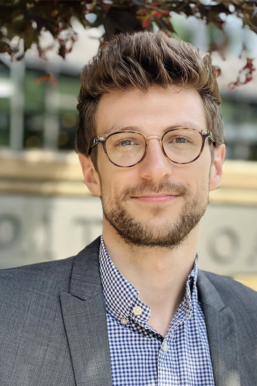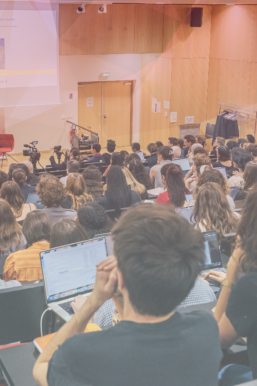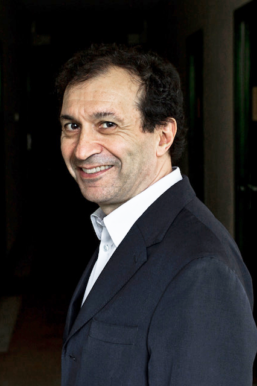PSE-CEPR Policy Forum: Deivy Houeix (PhD student, MIT), winner of the Daniel Cohen Award 2025


The Paris School of Economics will host the third PSE-CEPR Policy Forum from June 18 to 20, 2025, following the success of the 2023 and 2024 editions.
Jointly organized with the Centre for Economic Policy Research (CEPR), the forum aims to discuss critical emerging issues among leading researchers and policymakers, reaching a large audience that includes government officials and legislators, the media, and academia. The 2025 forum’s overarching theme will be: The Future of Work.
It will explore issues related to the reallocation of jobs and the reorganization of work in a world led by demographic changes, technological mutations and the environmental transition. It will also analyze the recent evolutions in social preferences and attitudes towards work, as well as the dynamics of compensations and their distribution across skills, gender, and race. Finally, it will delineate the innovative policies and strategies needed to meet those challenges.
Chair: Ariell Reshef (PSE, CNRS)
08:45-09:00 – Welcome speech
Edouard Challe (PSE, CNRS, CEPR)
09:00-09:45 – Opening Lecture
Questions and challenges for 21st century labor markets
Barbara Petrongolo (University of Oxford, CEPR)
09:45-10:45 – Carbon Tax and Labor Reallocation: The Role of Firm Heterogeneity and Energy Efficiency
François Fontaine (PSE, Université Paris 1 Panthéon-Sorbonne)
Discussant: Antonin Bergeaud (HEC Paris, CEPR)
10:45-11:00 – Coffee break
11:00-12:00 – Technological Progress of Generative AI capabilities at Work in Finance and Business
Maria del Rio-Chanona (UCL)
Discussant: Simon Bunel (Banque de France)
12:00-13:00 – Presentations PhD students selected by the CEPR call for papers
13:00-14:00 – Lunch break and Poster Session PhD students
14:00-15:30 – Policy Session – International Monetary Fund
Gen-AI: Artificial Intelligence and the Future of Work
Giovanni Melina (International Monetary Fund)
Discussant: Stijn Broecke (OECD)
15:30-15:50 – Coffee break and Poster Session PhD students
15:50-16:00 – CEPR Address
Beatrice Weder di Mauro (Geneva Graduate Institute, CEPR)
16:00-17:00 – Keynote Lecture
Expertise, Artificial Intelligence, and the Work of the Future
David Autor (MIT)
17:00-18:00 – Policy Conversation
Chair: Marc Gurgand (PSE, CNRS, CEPR)
09:45-10:45 – Does Feasibility Explain the Unequal Development of Working From Home?
Thomas Breda (PSE, CNRS)
Discussant: Eva Moreno-Galbis (Aix-Marseille School of Economics)
10:45-11:45 – The Spatial and Distributive Implications of Working-from-Home: A General Equilibrium Model
Morgane Richard (Sciences Po)
Discussant: Laurent Gobillon (PSE, CNRS, CEPR)
11:45-12:00 – Coffee break
12:00-13:00 – Presentations PhD students selected by the CEPR call for papers
13:00-14:00 – Lunch break and Poster Session PhD students
14:00-15:30 – Policy Session – DARES
Working Conditions and Telework in France: Trends, Risks and Emerging Insights
Elisabeth Algava and Fabien Guggemos (DARES)
Discussant: Clémence Berson (European Central Bank)
15:30-16:00 – Coffee break and Poster Session PhD students
16:00-17:00 – Keynote Lecture
Why Working from Home Will Stick?
Steven J. Davis (Hoover Institution, Stanford Institute for Economic Policy Research)
17:00-17:30 – Daniel Cohen Prize Award Ceremony
17:30-18:00 – Daniel Cohen, ENS and PSE: A shared legacy, a common project
Speakers: Esther Duflo, Olivier Legrain and Frédéric Worms
18:00-19:00 – Policy Conversation
Chair: Luc Behaghel (PSE, INRAE)
09:45-10:45 – Rise in home working and spousal labor supply
Mylène Feuillade (PSE)
Discussant: Olatz Roman (European University Institute)
10:45-11:45 – Gender Competition and Norms around Women’s Work
Suanna Oh (PSE, CEPR)
Discussant: Federica Meluzzi (CREST)
11:45-12:00 – Coffee break
12:00-13:00 – Presentations PhD students selected by the CEPR call for papers
13:00-14:00 – Lunch break and Poster Session PhD students
14:00-15:30 – Policy Session – OECD
The Role of Firms on the Gender Wage Gap: Evidence and Policy Perspectives
Stephane Carcillo (OECD)
Discussant: Anne Boring (Erasmus University Rotterdam)
15:30-16:00 – Coffee break and Poster Session PhD students
16:00-17:00 – Keynote Lecture
Gender Inequality: An Overview of the Latest Research
Marianne Bertrand (University of Chicago Booth School of Business, CEPR)
17:00-18:00 – Policy Conversation
The Daniel Cohen Prize Award Ceremony organized on Thursday, June 19 is supported by the association des anciens élèves de l’École normale supérieure (A-Ulm) and Emmanuel Boussard, former student of the ENS-PSL and co-founder of Boussard & Gavaudan.
The PSE-CEPR Policy Forum 2025 is supported by the American Foundation for the Paris School of Economics.


